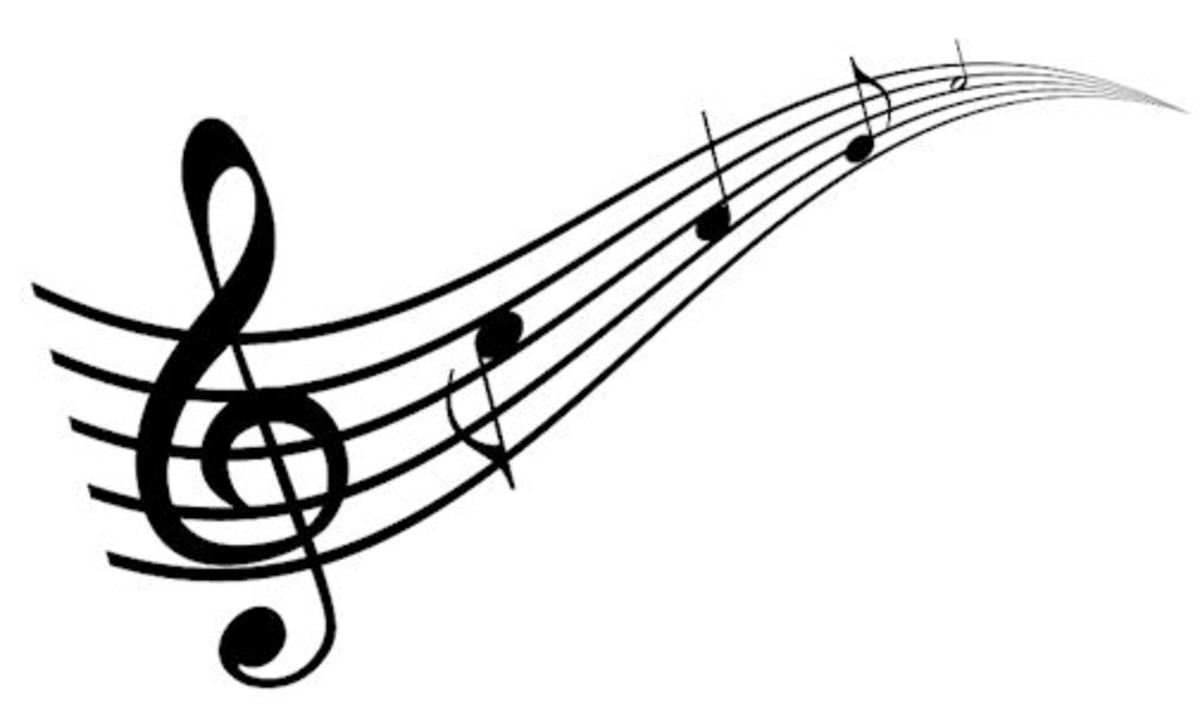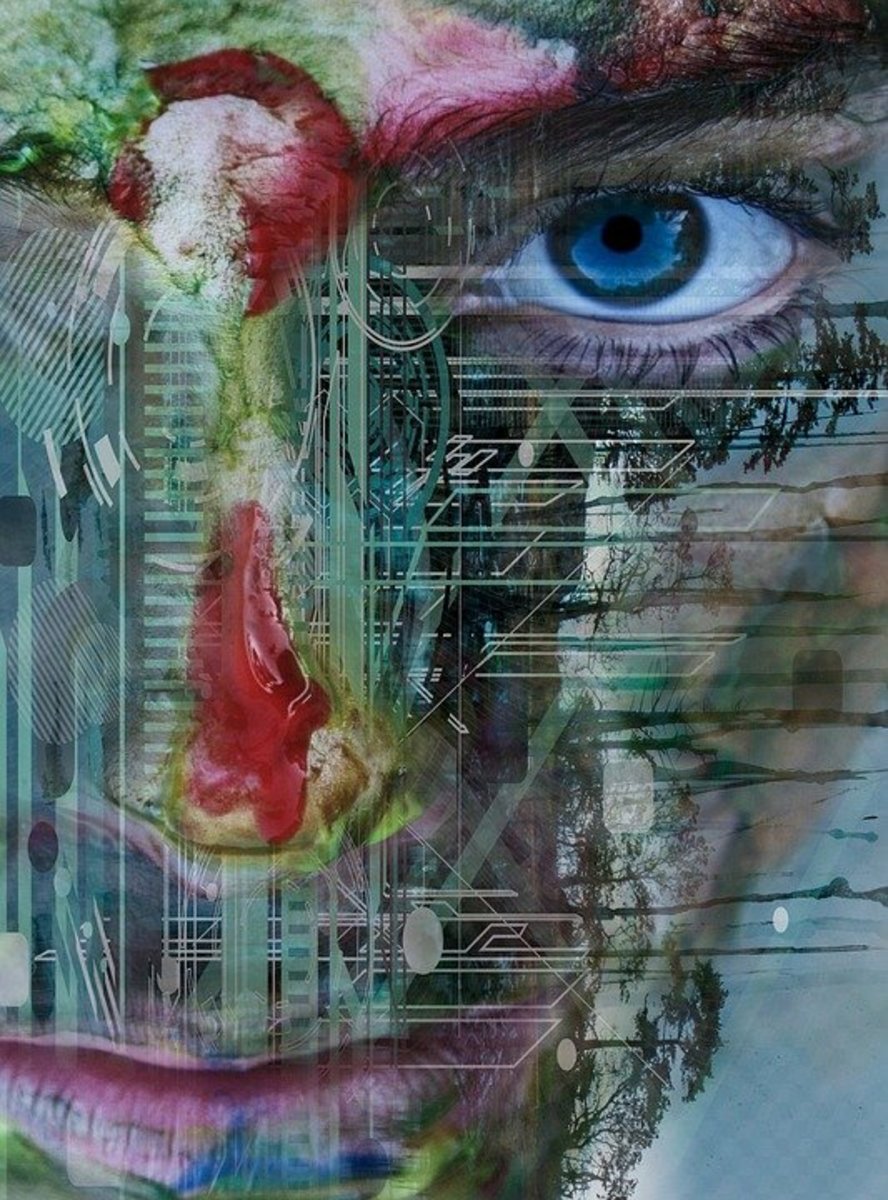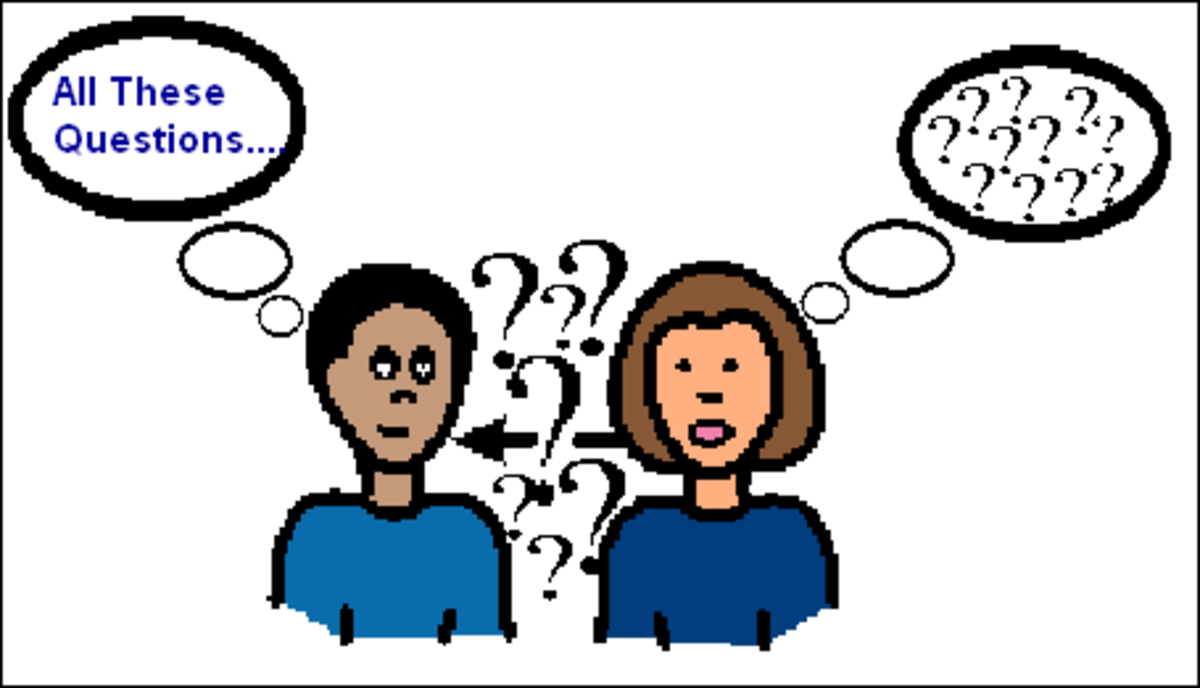- HubPages»
- Health»
- Diseases, Disorders & Conditions»
- Autism & Asperger's Syndrome
Having Asperger's Syndrome and wrong impressions
If you are shy, or socially awkward, I’ve found that people often get the wrong impression of you and make erroneous assumptions about you. As someone with Asperger’s Syndrome who not only is socially awkward and ‘shy’ but also has trouble recognizing social cues and can’t seem to socialize in the designated “correct” way, I’ve had to deal with this all my life. Even today, at age 34, I often give people the wrong impression about myself. When I go shopping, and someone talks to me or asks me a question, I get nervous, often avoid eye contact, and sometimes stumble on words. This happens so often when I have to interact in public that I don’t think about it much afterwards. When I was younger, if I was awkward in a social situation and gave someone the wrong impression, I’d feel bad or embarrassed about it for a while. Now, when that happens, I try to ignore it and push it out of my head. Since it’s been hard for me to change my awkward mannerisms even as an adult, I’m so used to being looked at as ‘the weird guy,” that I try to not even think about it and instead go back into my introverted world for some “Me” time.
A recent example where this ‘strategy’ somewhat failed was when I went to see a movie at the theater. I went alone (long story), and I knew that when I asked for tickets and purchased popcorn and a soda, I would get nervous and look “weird” to the person I was talking to. I often treat standard, boring social interaction like that as a dreaded “performance” that I have to live up to. If the person behind the counter says “Hi,” I’m supposed to say hi back with a smile and look him back directly in the eye the whole or most of the time, and then order my food. But I can’t do that very well; I get nervous every time and hate looking people directly in the eye. Often, when I go to the theater, I just want to get a ticket or food and go inside. I’m thinking, it’s just a simple business transaction. Why do I have to go through all the social niceties like “Hi” or “how are you?” or “thank you,” all the while looking at the guy the whole or most of the time or even forcing a smile? I just want to take care of business and get moving. But “normal” people expect this kind of behavior, so I often have to go through the motions and do something I really don’t want to do so I don’t look “weird” or like a jerk. I don’t want people to think I’m a weirdo or jackass, but I also don’t like most conventional social interaction. Once, when I went to the movie theater to buy my ticket, the guy in the booth said hi, and I got nervous, looked down to the counter, and simply said “one for (insert whatever the movie was here, because I don’t remember).” But the guy gave me a standoffish look, and I knew afterwards that he may have thought I was simply rude or a total snob who didn’t want to make chit chat with a “lowly” guy working at a movie theater. But that couldn’t be further from the truth.
So anyway, I went to see the movie “The Lazarus Effect” (I’m a horror fan), and I went to the lady inside to purchase my ticket. I simply wanted to say “one for The Lazarus Effect” and didn’t want to deal with the same conventional song and dance, but I knew that if I did that, I would look either weird, like a jerk, or both. So I forced myself to say hi. But I knew that when I said hi, I would immediately avert my eyes below them after forcing myself to look at them when I said hi, and then say, “one for The Lazarus Effect,” as I stared at their waist or the counter. And I did. And she gave me a “look.” Don’t ask me to describe the “look”. Aside from the fact that I am not good at recognizing body language, I still know when someone’s giving me the “you’re weird” look. I’ve experienced it all my life. I have no idea what they’re “really thinking.” It probably varies from person to person. Some people would think, “oh, he’s just shy,” or “oh, he’s a nerd.” But some people, unfortunately, might think I’m some kind of snob or just a plain disturbed weirdo. Anyway, even though she gave me the look, I’m so used to it that I put it out of my mind pretty fast afterwards. Except when I went to get some popcorn and a drink, the guy behind the counter at the snack area gave me a look that seemed more negative. Before I went to the counter, I stood to the side looking at the food available in order to make a decision on what to get before I went up to the guy. Once, while doing that, a girl working behind the counter abruptly asked me what I wanted while I was doing this, thus putting me on the spot to go up to her and make a decision right away. I wouldn’t say this was a big deal, per se. Often I spend more time making decisions than I really need to, just to make sure I make the 100% right decision, even though I’ve essentially made up my mind beforehand.
This time, I was afraid the guy was going to do the same thing as her and ask me what I wanted while I was standing on the sidelines. Again, this probably wouldn’t have been a big deal. I had a pretty good idea that I wanted a small popcorn and small Mr. Pib before I went in there. I was just trying to be “thorough” in my decision making progress. But my nervousness may have showed. In any case, after dawdling around the counter for 15 or 20 seconds, wondering if the guy was staring at me wondering what the hell I was doing, I went up to him. He said hi, I said hi back and immediately averted my eyes downward and nervously said, “I’d like”….and proceeded to order my snacks. This guy looked at me a bit more strangely than the previous lady did, probably because it was obvious that I was pretty nervous. Again, I don’t know how to describe the look he gave me, and I don’t know what he was thinking. In these situations, the best I can hope for is the person just thinks I’m shy. But unfortunately, I’ve often found that people sometimes make other assumptions beside that. They could think, “why’s he’s so nervous?” or ‘”what a dork” or “does he think he’s better than me or something? Why won’t he say hi to me?” or “what kind of freak is this guy?”
When I went in the theater, alone, I couldn’t help but think back to this interaction, worrying that he made some assumptions about me that weren’t accurate. Such interactions happen often enough that I usually forget about them. But this time, I started worrying about certain misperceptions he might have had, which I don’t want to get into now. But I can say that I really dislike when people lie or get the wrong impressions or assumptions about people. I really dislike it. I hate it, for example, when I’m watching a TV show and one of the characters gets into trouble because someone told a blatant lie about them or got the wrong impression about them or thinks something about them that is blatantly untrue. Some of that may be because of my personality, but I also think it’s because I’ve often had people judge me erroneously my whole life based on various things. Because I don’t talk much, people often make judgments about me that they think are accurate but are absolutely not, and it infuriates me.
When I was in middle school, for example, some people assumed that I was gay because I was shy or unassertive. I suspect, also, that some people thought I was gay because I was a pretty attractive guy. Not to brag or anything, but I know that’s true based on some of the girls who were attracted to me during school. But during a time when I began to get somewhat confused about my sexuality because of all these accusations, it was an extremely frustrating experience. I knew what they were thinking about me was wrong, but they had no way of knowing it because I didn’t say much of anything, and was too nervous to set the record straight (I.e. make conversation with the “right” people to clear up the misconceptions). Of course, it might not have mattered what I said anyway; people are jerks in middle school, and they may have continued to think many negative things about me even if I vehemently denied it. But it would have certainly helped a little. Many people in high school “wanted” me to talk, said so themselves, and were probably puzzled that I was so quiet. Thus, erroneous assumptions were probably inevitable. Still, I would say, don’t assume something about somebody if you don’t know if it’s really true or not. Perhaps that’s why one of my favorite quotes in the bible is the whole “judge not, lest ye be judged,” thing.
Anyway, to conclude this hub, I should point out that the social anxiety described earlier in seemingly bland social interactions isn’t necessarily a symptom of Asperger’s syndrome. It can be, and it usually develops in aspies (nickname for those with Asperger’s) but the main symptoms of Asperger’s regarding social interaction have more to do with how to socialize correctly than getting nervous in social situations. Asperger’s is not social phobia, but social phobia is often a problem that aspies develop because of their lack of ability to recognize social cues and make friends. It’s certainly still true in my case, and I’ve been on medication that is intended to alleviate this problem since eighth grade. But I’m hoping that some aspies can relate to this hub, and some “normal” people, after reading this, can understand more that the social conventions that come easy for them and so many other people can be somewhat difficult for someone like me.
I know it may seem odd that I get nervous in a seemingly “non-stressful” situation like getting your ticket or food at a movie theater. After all, you don’t have to do much. I’ve certainly been more stressed in situations like a presentation for a college class that I had to do. But for some reason, I still get nervous in simple interactions like this. I think the main problem is that I don’t want to look “weird” and thus have to “perform” in a way that is difficult for me. And I know that I get nervous when I look directly at people in the eye, because that often makes me lose my focus and I often end up stumbling on words. Thus, I know I will avoid eye contact and seem nervous, and yet, whenever I do that, I don’t look “normal” and thus may be looked down on or seen as weird or even “dumb” sometimes, and that makes the situation worse. I don’t want to look like an oddball, and it is not my intention at all to be rude or “mean” to someone, but it seems unavoidable that people still get that impression of me. I didn’t really “grow out of” my social awkwardness after high school like some people or the media seems to think mostly happens to “nerds” once they grow up.








